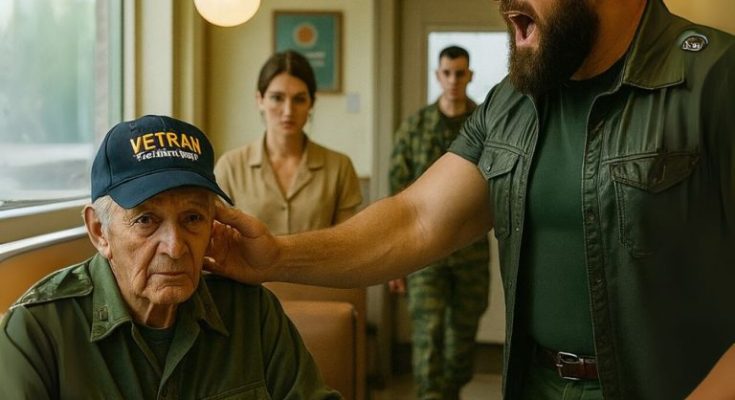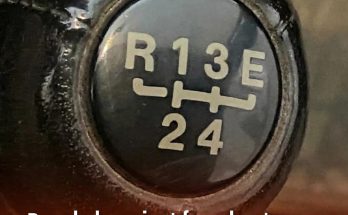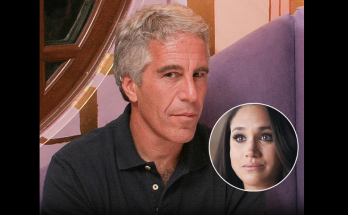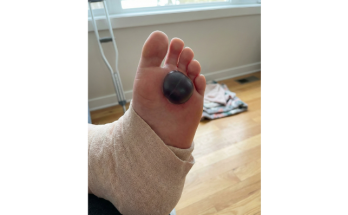The lunch rush at Maple Street Diner had its usual rhythm. The smell of fries and brewed coffee drifted through the air. A truck driver scrolled his phone while nursing a refill. A mother tried to coax her toddler into one more bite of a grilled cheese. Two high-schoolers laughed over milkshakes in a corner booth.
At a small table near the window sat an elderly man. His jacket was patched at the elbows, the color faded from years of wear. He was 81 years old, a Vietnam veteran, and he cradled his cup of black coffee like a small ritual. The staff knew him as “Mr. Harris,” always polite, never in a hurry.
He adjusted his cap and smiled faintly at the commotion around him. For him, the diner wasn’t just a place to eat; it was a place of routine and quiet comfort.
A Sudden Change in Atmosphere
The door swung open with a clang, and a gust of cool autumn air swept inside. Boots clomped against the tiles as a large man in a leather jacket entered. His helmet dangled from one hand, his gaze scanning the room until it landed on the veteran.
The chatter dimmed. Forks paused. Even the toddler fell silent.
“That’s my spot,” the newcomer said sharply, pointing at the veteran’s table. “You should move along.”
Mr. Harris looked up slowly. His voice was calm but firm, the kind of tone that made people listen. “Son, I’ve seen far worse than a seat dispute. If you need this chair that badly, you can have it.”
A Spill, a Phone Call, a Steady Gaze
Instead of taking the offer, the man brushed past roughly, bumping the table. Mr. Harris’s cap tumbled to the floor, and his coffee spilled across the table. Gasps rose from nearby booths. The waitress froze mid-step.
But the veteran didn’t shout or push back. He simply picked up his cap, wiped his sleeve, and asked quietly for the phone at the counter. He dialed a number, spoke only a few words, then returned to his chair, eyes steady on the window as if nothing had happened.
Minutes dragged on. The motorcyclist loomed nearby, expecting fear or anger, but the older man offered none. The diner stayed hushed, waiting to see what would happen next.
Reinforcements Arrive
The door opened again, and another man walked in—tall, gray-haired, wearing a long leather coat that brushed his boots. His stride was purposeful, his presence commanding.
He approached the biker without hesitation and produced a wallet. Inside gleamed a sergeant major’s badge. “You’re confronting a decorated veteran,” he said firmly. “He isn’t alone.”
The newcomer turned to Mr. Harris with a respectful nod. “This soldier trained men like me. And here’s the lesson—respect is earned, not taken.”
The Diner Learns a Lesson
The biker’s bravado faltered. He took a step back, glancing at the people watching from their booths. The tension that had filled the diner slowly ebbed. A mother whispered to her child about kindness. The trucker lowered his mug and shook his head.
In that moment, the incident became more than just a confrontation. It was a vivid reminder of dignity, service, and the quiet strength of those who have served.
Mr. Harris sipped the fresh coffee the waitress brought him and gave a small smile to the tall man standing guard. Around them, the diner returned to its ordinary bustle—but everyone inside had witnessed something extraordinary.




